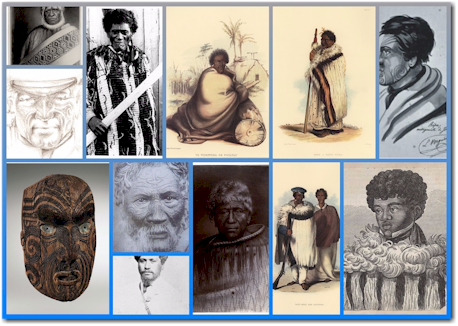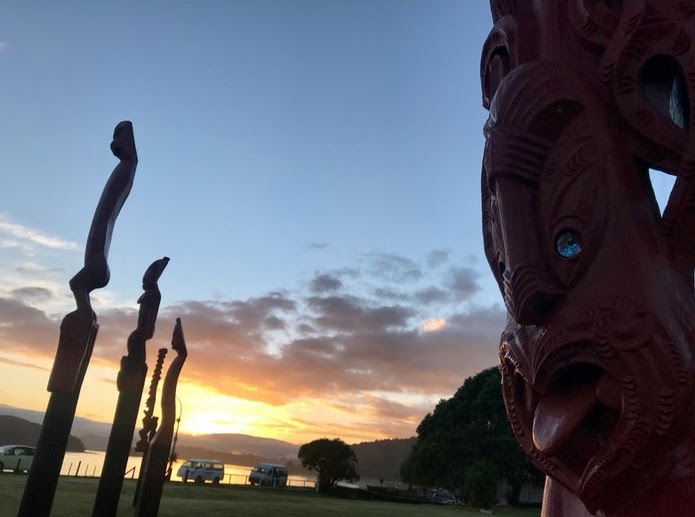of the United Tribes and Peoples of Nu Tireni New Zealand
Te Whare Ariki
Assenting Body of Divine Spiritual Law to the Wakaminenga o Nga Hapu o Nu Tireni
Proclaimed Sovereign Hapu Authority, Lawfully Constituted in accordance with the Internationally recognised He Wakaputanga o te Rangatiratanga o Nu Tireni 1835, whilst exercising Hapu Kawa Tikanga within the territory of Nu Tireni New Zealand.
Who we are:
The Hereditary Chiefs and Chiefs of tribes who have been selected to participate in decision making for the local hapu, regional, and National Wakaminenga. Our key role is to act as ethical decision-makers with respect to Article 3 of our Constitution – He Wakaputanga o Te Rangatiratanga o Nu Tireni 1835 (Declaration of Independence 1835).
Apart from Ariki and Rangatira, also included in the Chiefs of Confederation of the United Tribes of New Zealand are tangata that have kaiawhina, talents or skills that are able to be called on for monitoring, analysis, reporting, and implementation of decisions we make.

What we do:
Under He Wakaputanga o te Rangatiratanga o Nu Tireni 1835, we carry out the following:
- Framing of laws
- Dispensation of justice
- Preservation of peace and good order
- Regulation and support for trade
- Support building of local wakaminenga with resource material and guidance
- Establish and maintain a database of tangata (people) who have chosen to migrate to the highest jurisdiction of He Wakaputanga o te Rangatiratanga o Nu Tireni
- Provide products and services to aid in the growth and distribution of the sovereignty that He Wakaputanga offers.

Become a member of the Confederation
If your hapu or whanau have proclaimed themselves under He Wakaputanga o Te Rangatiratanga o Nu Tireni, you can nominate rangatira (chiefs) or leaders towards entering the Confederation based on these criteria, which are:
- Hereditary Chief, Rangatira
- Rangatira Chief of a tribe (hapu)
- Endorsed Leader Rangatira
- Tohunga (expert) with talents in these areas such as :
- Whakapapa (genealogy), tikanga (customary law), culture, arts, science, history, economics, analysis, computing, health, rongoa, education, social science, leadership, management, administration, politics, planning, diplomacy, languages.
Each rangatira, chief, leader will go through an interview process whereby a committee of the the National Wakaminenga will screen and provide training for ethical conduct before they enter into the Confederation and in the participation of the Wakaminenga.
Ethical Code Of Conduct
To maintain order within Te Wakaminenga, Chiefs are required to meet a high standard of ethical behaviour in order to firstly operate as a functioning and coherent Wakaminenga, but also to prevent injustices to hapu whanau and other people.
All Chiefs will be given a Code of Ethical Conduct, and participate in wananga for self-improvement and development.
Wakaminenga National Congress
The Wakaminenga National Congress or Te Wakaminenga o Te Rangatiratanga as it was originally known, is the sovereign governing body of the Sovereign Nation of Nu Tireni New Zealand, that existed prior to 1840 and continues to exist in accordance with the Declaration of Independence of 1835, He Wakaputanga
Based on nga pou e wha, four [4] pillars:
- Self-determination
- Sovereignty
- Framing of laws for trade and justice
- Backed by a guarantee by the British Crown of protection and access to the Commonwealth in return for mutually agreeable cooperation on equal standing.
The Sovereign Nation of Nu Tireni welcomes all the living men and women of Aotearoa Nu Tireni to unite under its protection and benevolent adherence to all human rights as described in the Nuremberg Code and The UNESCO Declaration on Bioethics and Human Rights, including the freedom to choose, be fully informed and to pursue wellbeing and happiness. We reject all forms of coercion and manipulation.
Nga Hapu, Nga Hapori (Communities) o Nu Tireni
Leaders or heads of tribes represent their rohe/area wakaminenga made up of hapu, iwi and hapori (communities) who take their seat at the table of Te Wakaminenga National Congress of Nu Tireni in accordance with our constitution, He Wakaputanga o te Rangatiratanga o Nu Tireni 1835. Te Wakaminenga National Congress’s role is to unify the people and to have oversight of national and international matters that affect our country as a whole. It is the official law making body and the protector of our sovereignty of Nu Tireni New Zealand.
The tribal or community wakaminenga influence the decision making of Te Wakaminenga National Congress and a consultation process is in place to ensure rohe/area wakaminenga o nga hapu, iwi and communities are properly consulted. Rohe or area wakaminenga are now referred to as minenga councils to distinguish them from the Wakaminenga National Congress.
To make the distinction between Wakaminenga National Congress (WNC) and Wakaminenga Maori Government (WMG), the role of the Wakaminenga Maori Government is as appointed Administrator Government to the Wakaminenga National Congress. It also provides advice and support to regional minenga councils as well as WNC.
Nu Tireni is sometimes spelt – Nu Tirene, or Niu Tireni, or Nu Tirani depending on the scribe at the time – as the Maori language was largely unwritten. This is also why you see different variations of He Wakaputanga – the original document has no ‘h’, however many references since have inserted the ‘h’ hence Whakaputanga.